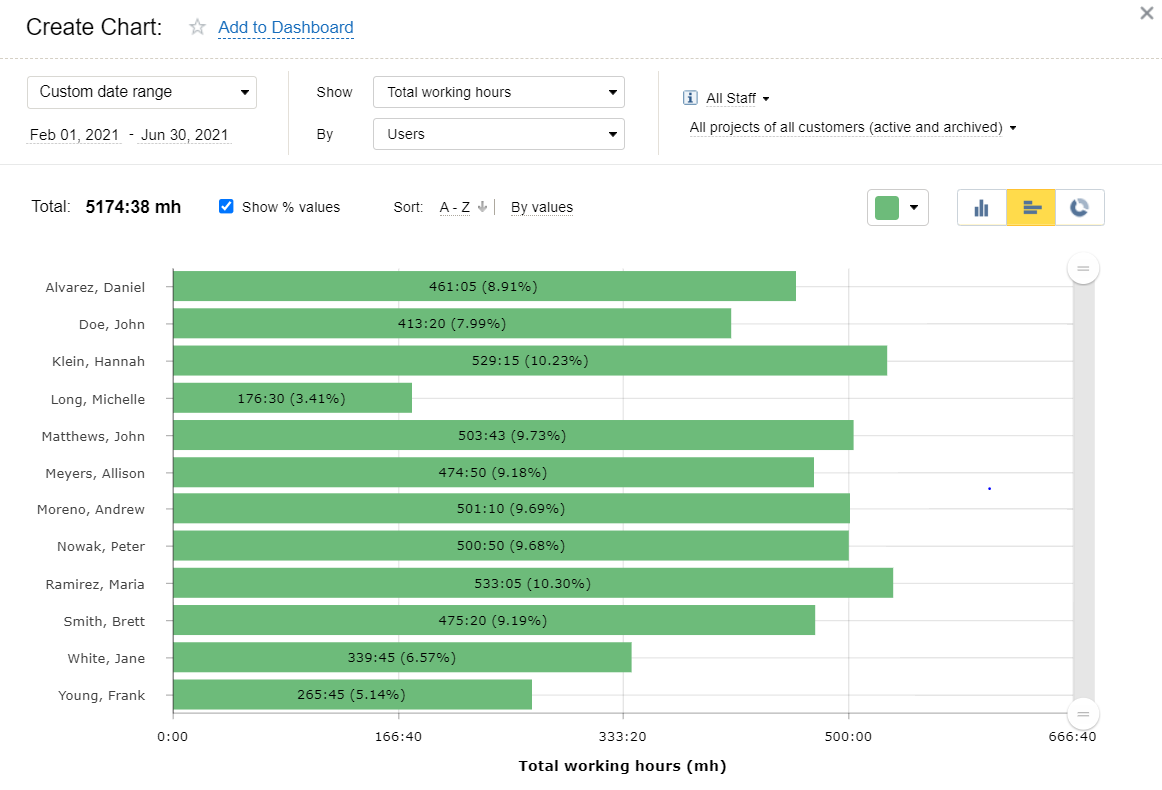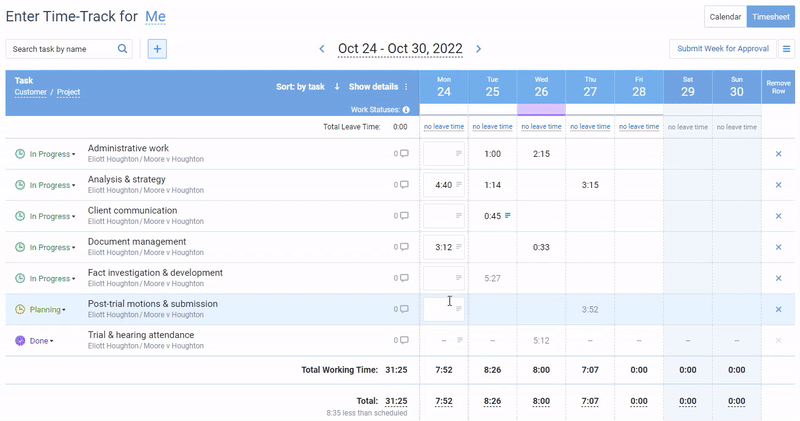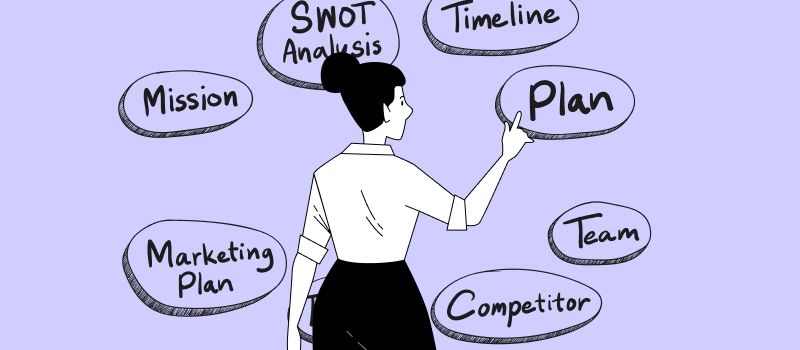
If you’ve been dreaming of merging your passion for architecture with a successful career in project management, now is the time to make it happen. Becoming a successful architectural project manager requires plenty of skill and dedication — but those willing to put in the hard work will be rewarded with excellent job opportunities, ample salary potential, and an extremely rewarding profession.
In this blog post, we’ll discuss strategies on how to become a knowledgeable and well-versed architectural project manager so that you too can take that first step towards achieving your career goals.
Who Is an Architectural Project Manager?
An architectural project manager is a highly skilled professional who is responsible for leading and coordinating all aspects of an architecture project. They are typically trained in architecture, engineering, or construction management, and have extensive experience in planning, designing, and executing complex building projects.
The primary role of an architectural project manager is to ensure that the project is completed on time, within budget, and meets all the necessary quality and safety standards. To achieve this, they must work closely with a team of architects, engineers, contractors, and other stakeholders to develop and implement a comprehensive project plan.
Overall, the role of an architecture project manager is critical in bringing construction designs to life. Below, you will find a comprehensive list of job responsibilities it is comprised of.
Architecture Project Manager Job Responsibilities: A Comprehensive List
- Preparing project proposals and bids, including project timelines, budgets, and strategies.
- Overseeing project execution to ensure compliance with design specifications, building codes, and quality standards.
- Coordinating and managing construction teams, including architects, subcontractors, and other stakeholders.
- Establishing project benchmarks and reporting progress to stakeholders.
- Conducting site inspections and providing feedback to construction teams.
- Identifying and mitigating project risks.
- Developing and managing project budgets.
- Ensuring that projects are completed within established timelines.
- Developing and implementing project schedules.
- Ensuring that projects are fully scoped and that all necessary permits are secured.
- Reviewing project contracts and ensuring that they are complied with.
- Ensuring that projects are executed safely and in compliance with occupational health and safety standards.
- Coordinating with regulatory agencies when necessary.
- Managing subcontractor and vendor relationships.
- Preparing and presenting project status reports.
- Resolving project-related issues and conflicts.
- Ensuring that project documentation is up-to-date and accessible.
- Coordinating project closeout activities including compliance with punch list items and project sign-off.
- Coordinating project commissioning / testing and training of owner’s representative / end user.
- Approving and tracking invoices, purchase orders, and change orders.
- Developing and implementing quality control programs.
- Managing and mitigating project scope creep.
- Facilitating design meetings with internal design teams and external consultants.
- Ensuring that projects are environmentally sustainable.
- Ensuring that projects are delivered to a quality standard for clients.
- Developing and implementing project management tools and methodologies.
- Developing and maintaining strong relationships with clients.
- Developing and implementing project performance metrics.
- Mentoring and leading project teams.
- Ensuring that project teams adhere to company policies and procedures.
Checklist: Do You Have What It Takes to Be an Architectural Project Manager?
To help you determine if you have what it takes to be a successful architectural project manager, we compiled a comprehensive 50-point checklist. It covers everything from educational requirements and technical skills to interpersonal abilities and project management experience. By reviewing and comparing your abilities with these questions, you can identify areas for further development on the way to becoming more effective in your role.
Educational requirements:
- Do you have a degree in Architecture or a related field?
- Have you completed coursework in Management, Business Administration, or Project Management?
- Have you completed any additional training or certifications in Construction Management or Project Management?
Project management skills
- Do you have experience managing complex architectural projects from start to finish?
- Can you develop and manage a project schedule to ensure timely completion?
- Can you create and manage a project budget that is realistic and accurate?
- Can you develop and enforce project standards and protocols?
- Can you identify and mitigate project risks and issues?
- Can you effectively communicate project status to project stakeholders?
- Can you manage project resources, including personnel and materials?
- Can you effectively coordinate with project team members, contractors, and vendors?
- Can you ensure project compliance with relevant codes, regulations, and standards?
- Have you successfully managed a project team, comprising individuals with varied backgrounds and skill sets?
Technical skills
- Do you have a thorough understanding of architectural design principles and practices?
- Can you produce and interpret architectural drawings, including floor plans, elevations, and section drawings?
- Can you use architectural software, including AutoCAD and Revit?
- Can you interpret and analyze building codes, zoning laws, and other regulations?
- Can you develop and interpret construction documents, including specifications and contracts?
- Can you perform cost estimating and budgeting for architectural projects?
- Can you identify and specify suitable construction materials and systems?
- Can you evaluate the environmental impact of architectural designs and materials?
- Can you evaluate the safety and accessibility of architectural designs?
Interpersonal skills
- Do you possess excellent written and verbal communication skills?
- Can you negotiate conflicts and manage difficult stakeholders?
- Can you establish and maintain effective relationships with project stakeholders, including clients, architects, engineers, contractors, and vendors?
- Can you develop and maintain professional relationships with project team members?
- Can you motivate and lead project team members to achieve project goals?
- Can you provide clear and constructive feedback on project team member performance?
- Can you inspire trust and confidence in project stakeholders?
Leadership skills
- Can you develop and articulate project goals and objectives?
- Can you delegate project tasks to project team members effectively?
- Can you adapt to changing circumstances and adjust project plans accordingly?
- Can you develop and implement a risk management plan?
- Can you develop and implement a quality control plan?
- Can you develop and implement a safety plan?
- Can you develop and implement a sustainability plan?
Construction site management
- Do you possess knowledge of construction safety regulations?
- Can you manage a construction worksite in an efficient manner?
- Can you ensure that the construction site meets quality and safety standards?
- Can you ensure that all construction work is in compliance with codes and regulations?
- Can you manage finances relating to construction and materials supply?
- Can you liaise with suppliers and contractors in relation to the site?
Other skills
- Do you have knowledge of environmental regulations and requirements?
- Can you ensure that environmental concerns are addressed and considered throughout the project life cycle?
- Can you provide training and support to project team members?
- Can you participate in development workshops, training sessions, and conferences?
- Do you stay up to date with the latest trends and updates in the construction industry?
- Can you lead teams in multidisciplinary projects?
- Can you manage change effectively to ensure continuous improvement?
- Can you foster a positive work environment where people feel valued, and which fosters innovation and excellence?
Tips on How to Become an Architectural Project Manager
1. Get more experience in the architecture industry
If you want to get ahead and become a respected professional, one of the best pieces of advice is to get more experience in the architecture industry. This can mean brushing up on existing skills, finding an apprenticeship, or interning at a design agency – whatever will help expand your knowledge and make you stand out as an expert.
Each accomplishment along the way will build up your credibility in the eyes of colleagues and employers alike, so be sure to write down any architectural experiences you have on your CV and keep promoting yourself whenever possible.
2. Work on your technical skills
The technical project components are equally or even more important than the creative and aesthetic ones in the end result of any structure. Hence, if you want to become a successful architectural project manager, take some time to work on your drafting and engineering skills. This will give you a leg up when creating detailed plans and blueprints that bring each building together and make sure it’s done safely and efficiently.
Besides, for any exceptional architectural project manager, it’s crucial to stay on top of the latest technological advances. This particularly applies to software for 3D and 2D CAD and other tools used in today’s digital-first design world.
As an architect, such tools are like paintbrushes. With skillful manipulation, they help to create highly detailed plans that dazzle minds and transform ideas into reality. Thus, if you can learn how to apply this software to work, you’ll be a valuable asset in any organization that builds projects.
3. Learn project management basics
Instead of having a single-minded focus on the prized goal of becoming an architect, getting additional familiarity with the basics of project management can be unbelievably helpful in terms of career advancement. So, be smart, take on this small step, and lock those basics down:
- Planning – Planning provides a roadmap for architects as they gear up to bring a project from concept to completion, setting out timescales and laying out the various processes in an orderly way. With careful planning comes greater efficiency and better results, allowing talented minds to work together toward creating something truly special in architecture.
- Estimation – Project estimation is like understanding how many jellybeans there are in a jar without counting them all one by one. It’s an educated guess that requires experience, knowledge, and analysis of potential costs of materials, labor, and other tangible inputs based on current market conditions and different project complexities.
- Cost control – With an eye always focused on financial resources, architects must be sure they are accounting for everything necessary to make their projects efficient and cost-effective. This means being aware of potential overspending and taking such preventative measures as budget reviews and cost analysis against expected outcomes. In doing so, it’s possible to avoid cost overruns and deliver the project within its allocated budget.
- Progress monitoring – It’s a process that involves regular measurement and evaluation of performance progress throughout the project lifecycle to ensure all the set objectives are met. It allows architects to identify issues, adjust methods or timelines as needed, and fix potential problems before they become too costly or delay the completion of the project.
- Data analysis – By collecting and understanding data, such as project costs and timelines, architectural professionals can better assess their progress and make informed decisions about their projects. It’s also great for spotting trends over time, helping project managers anticipate any issues that may arise down the road before it’s too late.

Use actiTIME to manage project resources, track team progress, collect accurate performance data, and analyze it in depth
4. Consider getting a certification
Project management and other certifications will help you complement your existing skill set, giving you a competitive edge in the field. Here are just a few certification options to consider:
- Project Management Professional (PMP) Certification: This globally recognized certification is issued by the Project Management Institute, and it shows that you have the necessary skills and knowledge to successfully manage complex projects. It covers such topics as project scope, time and cost management, communication, and risk management.
- Certified Construction Manager (CCM) Certification: This certification, issued by the Construction Manager Certification Institute, is specifically designed for construction managers and project managers in the construction industry. It covers project planning and execution, construction law and contracts, and safety management.
- Leadership in Energy and Environmental Design (LEED) Certification: This certification by the United States Green Building Council demonstrates your expertise in sustainable design and construction practices. It focuses on such topics as energy efficiency, water conservation, indoor air quality, and materials and resources.
- Autodesk Revit Architecture Certification: This certification is made for professionals working with Autodesk Revit Architecture software. It proves that you have the advanced knowledge and skills to effectively manage architectural projects using the software.
- Building Information Modeling (BIM) Certification: It verifies your expertise in using BIM software to manage construction projects and covers such topics as BIM modeling, design and analysis, and project collaboration.
5. Develop good communication skills
It might seem like a no-brainer, but one of the most important things to do if you want to become an architectural project manager is to really focus on developing your communication skills. Since you’ll be responsible for managing people and working with different teams, it’s critical that you know how to express yourself effectively + provide and understand feedback – it’s the key building block for success.
While having technical expertise is important too, exercising good judgment and forming strong relationships are essential in achieving sustainable results. Thus, prioritize improving your communicative and social skills, as they will take you far in becoming an effective professional.
6. Master people management
Becoming an architectural project manager requires strong leadership and business acumen, as well as the ability to masterfully manage people. After all, it’s not just the bricks and steel that build a structure – it takes a talented team of engineers, designers, and builders working together to make any architectural vision possible.
When working on your people management skills, you need to learn how to foster collaboration among different teams, create productive work environments, and anticipate problems before they arise in order to keep projects running smoothly.
Such a task can be intimidating at first but stick with it: mastering people management will give you the edge you need to succeed in this high-stakes profession.
7. Use efficiency-boosting project management tools
When managing architectural projects, it’s crucial to have a well-structured system in place to ensure everything runs smoothly, efficiently, and within budget. And actiTIME is an excellent solution for this purpose as it provides a comprehensive suite of tools and features designed for project managers in any industry.

Track the exact time spent on work in a convenient way
By tracking time and costs with actiTIME, you get accurate data for project estimation. Utilizing it to inform your decision-making will help you stay on budget and avoid cost overruns that can derail your plans.
Once you have your estimates in place, make use of actiTIME’s task management features to assign tasks to employees, set priorities, and manage team workloads in real time. You can also set up automatic notifications to ensure that everyone stays on top of their deadlines.

Manage multiple projects at once and keep all the essential task details in a single place
With actiTIME, you can easily monitor project progress, detect potential delays or issues as they arise, and take proactive measures to address them before they become major problems.
Besides, actiTIME lets you keep tabs on expenses and offers a bunch of reporting and analysis tools that help to identify any areas where you can improve efficiency, reduce waste, and increase profitability. You can generate customized reports on a range of metrics, including time and cost data, task estimates met, and team performance.
Stop spreadsheeting and let actiTIME do the heavy lifting for you! Sign up for a free online trial now!
Conclusion
Assembling teams of architects, engineers, and contractors to make the puzzle pieces of a project come together is no easy feat. After all, architecture itself is an art form fused together with science and mathematics. Yet if you’re interested in becoming an architectural project manager despite all difficulties, the tips outlined in this post are a great place to start.
Do your research, gain some experience in the field, and make sure you have a strong understanding of the design process – and you’ll be on your way to a successful career in architecture project management.
Thanks for reading!













































